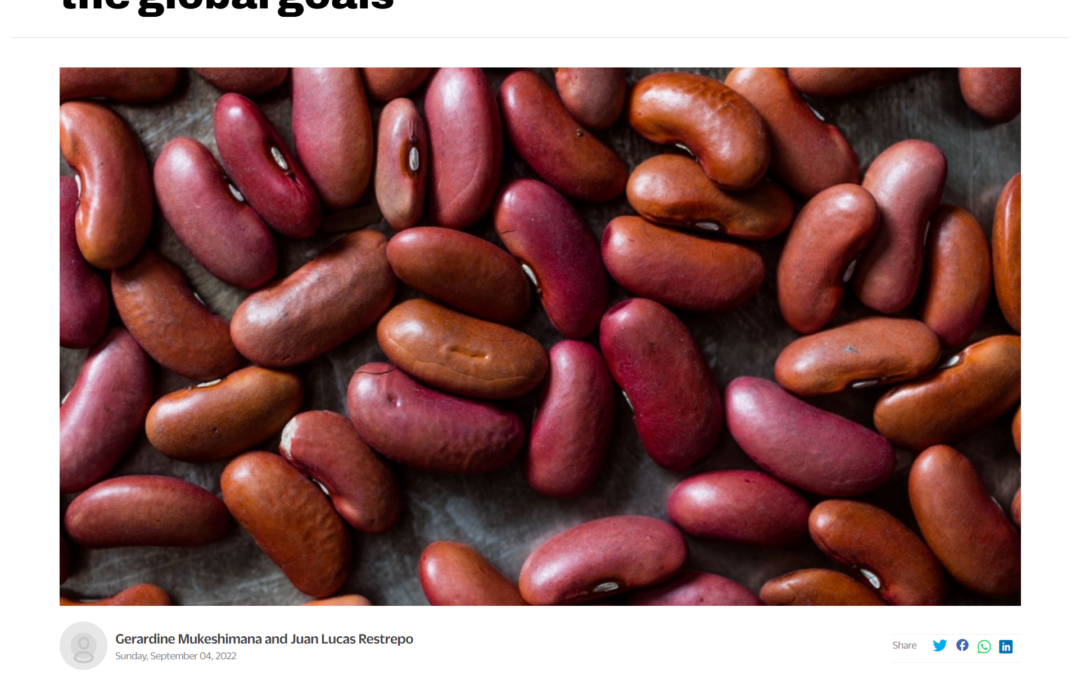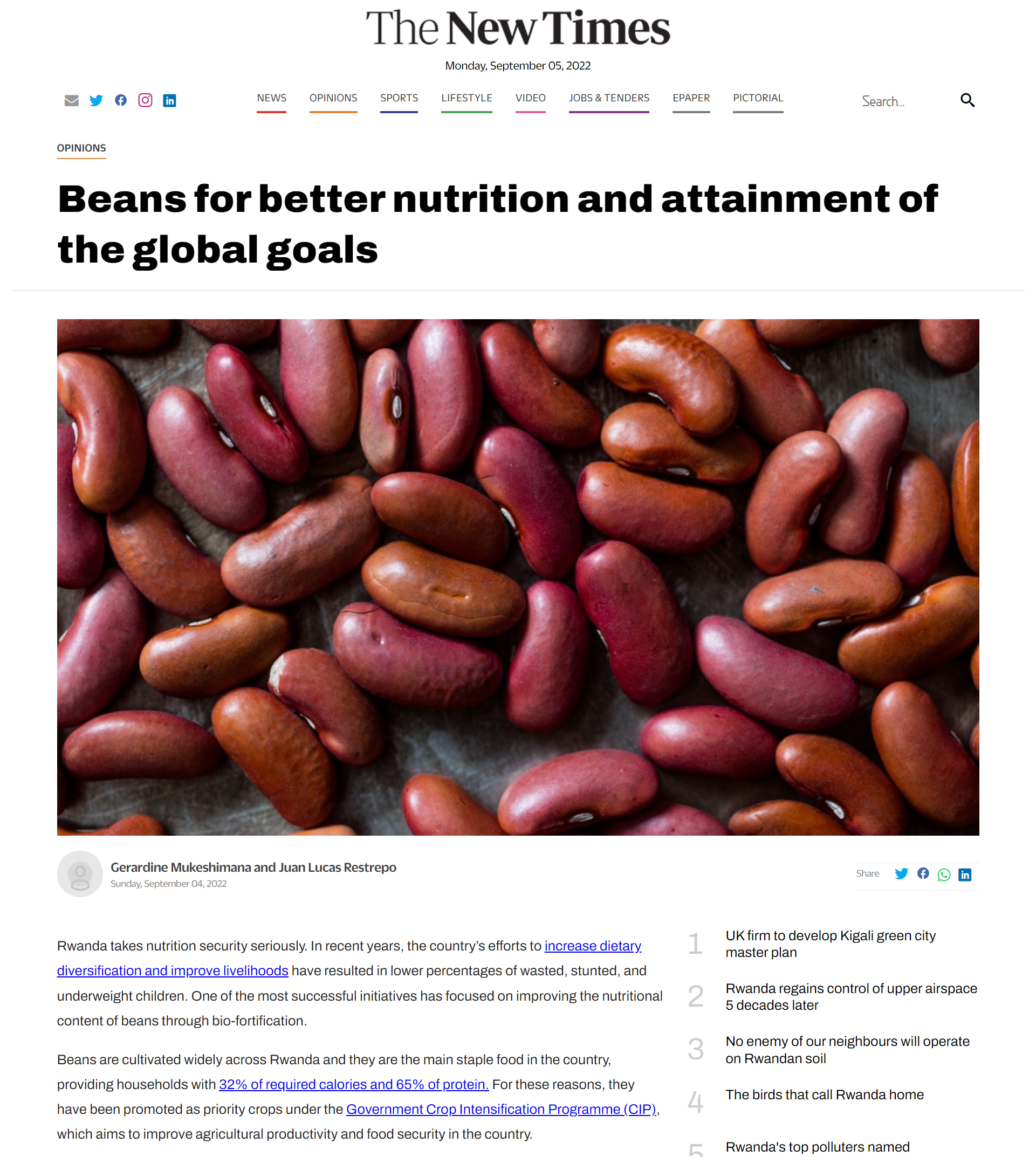By Gerardine Mukeshimana, Minister for Agriculture and Animal Resources in Rwanda,
and Juan Lucas Restrepo, Global Director for partnerships & advocacy at CGIAR,
and Director General of the Alliance of Bioversity International and CIAT
Rwanda takes nutrition security seriously. In recent years, the country’s efforts to increase dietary diversification and improve livelihoods have resulted in lower percentages of wasted, stunted, and underweight children. One of the most successful initiatives has focused on improving the nutritional content of beans through bio-fortification.
Beans are cultivated widely across Rwanda and they are the main staple food in the country, providing households with 32% of required calories and 65% of protein. For these reasons, they have been promoted as priority crops under the Government Crop Intensification Programme (CIP), which aims to improve agricultural productivity and food security in the country.
Iron- and zinc-rich beans are sustainable, inexpensive, and cost-effective healthy foods for people of all incomes. A series of studies by CGIAR found that daily consumption of iron-rich beans has helped increase iron levels among Rwandan women of reproductive age, improved their physical performance, and contributed to better memory and attention span in only six months.


